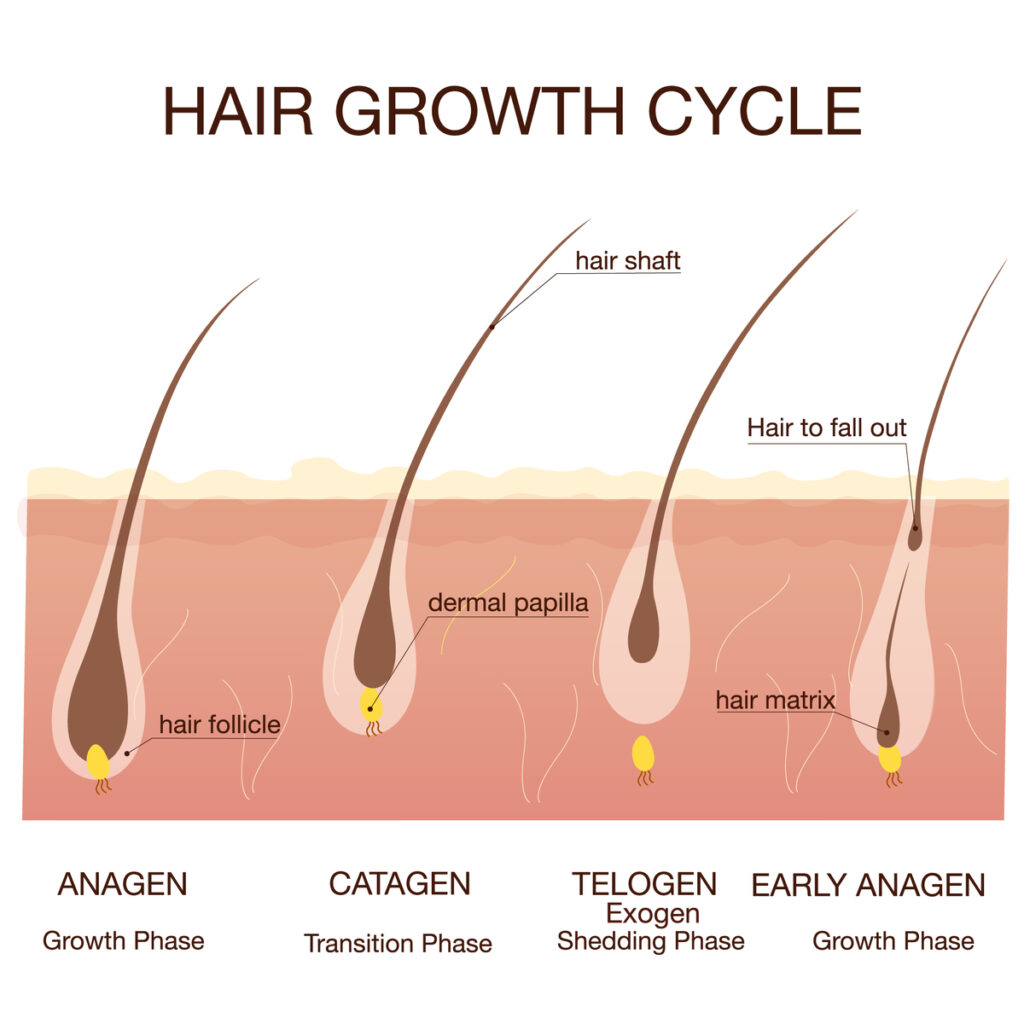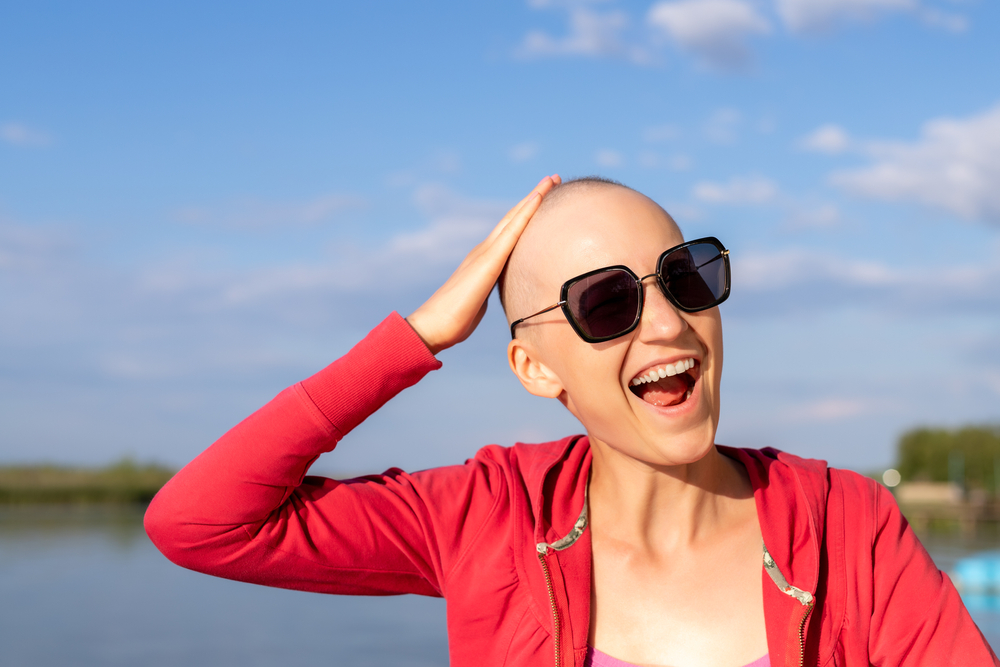The first question I’m often asked after I tell a woman she will need chemotherapy is, “Will I lose my hair?“
Women report hair loss, or alopecia, as the most stressful side effect of chemotherapy. Yet, as doctors, we tend to dismiss this concern as a temporary, but necessary, adverse side effect for potentially lifesaving treatment.
Our hair is intricately tied to our body image, self-esteem, and identity. It’s so important to us, in fact, that about 10% of patients decline hair loss-inducing chemotherapy for less effective cancer treatments, or none at all.
Coping with Chemo-Induced Alopecia
Chemo-induced alopecia makes a very private diagnosis public. It can even put the thought of cancer in the bathroom mirror. But, it doesn’t need to. We are so much more than our outward appearance or our cancer diagnosis.
Each of us is a unique person with their own story and very different hair. Plus, everyone loses hair, about 100 strands every day. For the most part, no one even notices this as regrowth usually occurs at the same rate to maintain our hair volume.

There are four phases in the cycle of hair growth:
- Anagen: the growth phase
- Catagen: the transitioning phase
- Telogen: a resting phase
- Exogen: when the hair falls out
Most of the hair follicles in our scalp – typically around 85% – are in the growth phase which usually lasts three to five years. During this time, the cells in the root of the hair are rapidly dividing with the strands lengthening by roughly ½ an inch per month.
The transitional phase is a short, ten-day period when hair follicles lose their blood supply and stop growing. Over the next three months – the resting phase – the hair remains in the follicle but doesn’t grow. The hair strands are then released from the follicle during exogen, the final phase, lasting from two to five months.
Now, we are all familiar with a bad hair day, even Hilary Clinton, who once said, “If I want to knock a story off the front page, I just change my hairstyle.”
It’s Time You Knew
In this month’s episode of “It’s Time You Knew,” I spoke with Billy Boney, an award-winning stylist from Mario Russo Salon on Newbury Street in Boston, on ways he helps clients manage hair loss. Tune into our discussion for the latest on hair care, new wig technology, and wig maintenance. We also touch on the SCALP trial – a randomized clinical trial that used a cooling cap during chemotherapy infusion to cool the scalp, thus decreasing blood flow and delivery of chemotherapy to the hair follicles with the goal of preventing hair loss.
If you are experiencing alopecia, Look Good Feel Better offers free programs to provide hair and beauty makeovers as well as tips to women with cancer. Their website also addresses alopecia for teens with cancer and offers a guide for male cancer patients. Local chapters of the American Cancer Society sponsor these and similar programs.
More information on the Paxman cooling cap and answers to frequently asked questions are available at www.coldcap.com and www.coldcaphaircare.com.
For more on women’s health, check out my book, It’s Time You Knew: The Power of Your Choices to Prevent Women’s Cancer.



Recent Comments